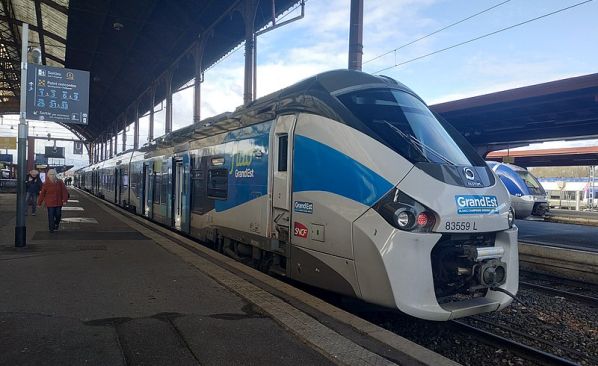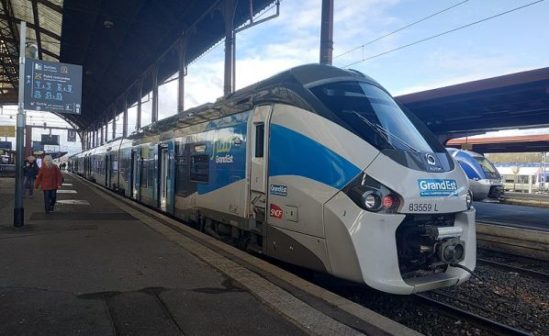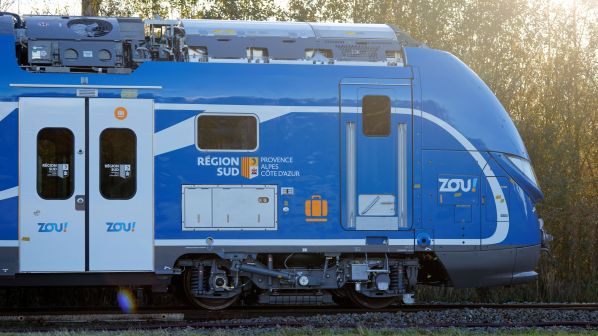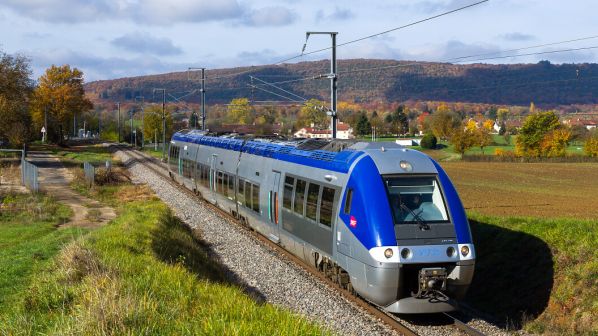THE Grand Est region has signed a new contract for the operation of TER regional services from 2024 to 2033 with French National Railways’ (SNCF) passenger business SNCF Voyageurs.
The contract was signed by Mr Franck Leroy, president of the Grand Est region, and SNCF Voyageurs CEO, Mr Christophe Fanichet, during a ceremony at Molsheim station last month.
Grand Est says that this “ambitious and innovative” contract marks a crucial step in the development of the regional rail network, with a strong emphasis on service quality, increasing the number of trains operated and opening up the network to competition.
The over-riding aim of the new agreement is to make the passenger the first priority while meeting the transport needs of the region, according to Grand Est. The region will continue its policy of increasing the frequency of TER services, which has seen the number of trains operating on weekdays rise from 1530 in 2016 to 1891 in 2023.
The new contract includes a tougher performance regime to improve service quality, based on 12 geographical areas with individual performance targets. Punctuality targets have been tightened and TER services will be required to arrive within 2min 59sec of schedule rather than within 5min 59sec.
The 5min 59sec threshold will apply to the two long-distance inter-regional lines that SNCF Voyageurs will be operating under the new agreement.
In order to rapidly improve service quality, Grand Est says it will be investing €10m over the coming months to acquire additional reserve rolling stock, and fund improvements to fleet maintenance so that trains are out of service for shorter periods of time.
The new contract marks transitional phase as the Grand Est TER network is opened up to competition between now and 2033. SNCF Voyageurs will be responsible for overall management of the network, from ticket retailing to customer relations and the provision of passenger information, to ensure that passenger experience remains consistent across the region.
Grand Est says that the contract is based on a new funding model whereby SNCF Voyageurs pays all income to the region, which then reimburses all its costs including any increases in the price of energy and raw materials.
In order to ensure high service quality, what the region describes as a “demanding” performance regime will see penalties for failing to meet contractual targets multiplied by a factor of 10.
From 2024 to 2033, Grand Est has committed to invest €1.2bn in developing the TER network. At least €1bn will be spent on new trains and rolling stock refurbishment to support higher service frequencies and improve service quality.
“This contract is changing the rules of the game for the benefit of our passengers,” Leroy says.
“In order to retain passengers and attract new users, we must be ever-more demanding in order to guarantee service quality.”
Infrastructure investment
Last month Leroy also signed an agreement covering the transport component of the 2023-2027 funding agreement (CPER) between Grand Est and central government, which will see a total of €2.1bn spent on projects in the region.
€650m will be allocated to the development of Metropolitan Regional Express Service (Serm) networks, including the European Metropolitan Regional Express (Reme) project in Strasbourg, networks in Mulhouse and Reims, and on the Nancy - Metz - Luxembourg route.
Other rail infrastructure projects will receive a total of €835m, including completion of electrification on the Paris - Troyes main line, starting work on a rail connection to the EuroAirport between Mulhouse and Basel, and improving access to Reims and Verdun stations.
Upgrades will be undertaken on the Charleville-Mézières - Givet, Arches - St Dié and Epinal - Bains-les-Bains lines, plus six minor passenger lines in the department of Bas Rhin, three in Haut Rhin and two freight lines in Marne.
For detailed data on European rail projects, subscribe to IRJ Pro.




